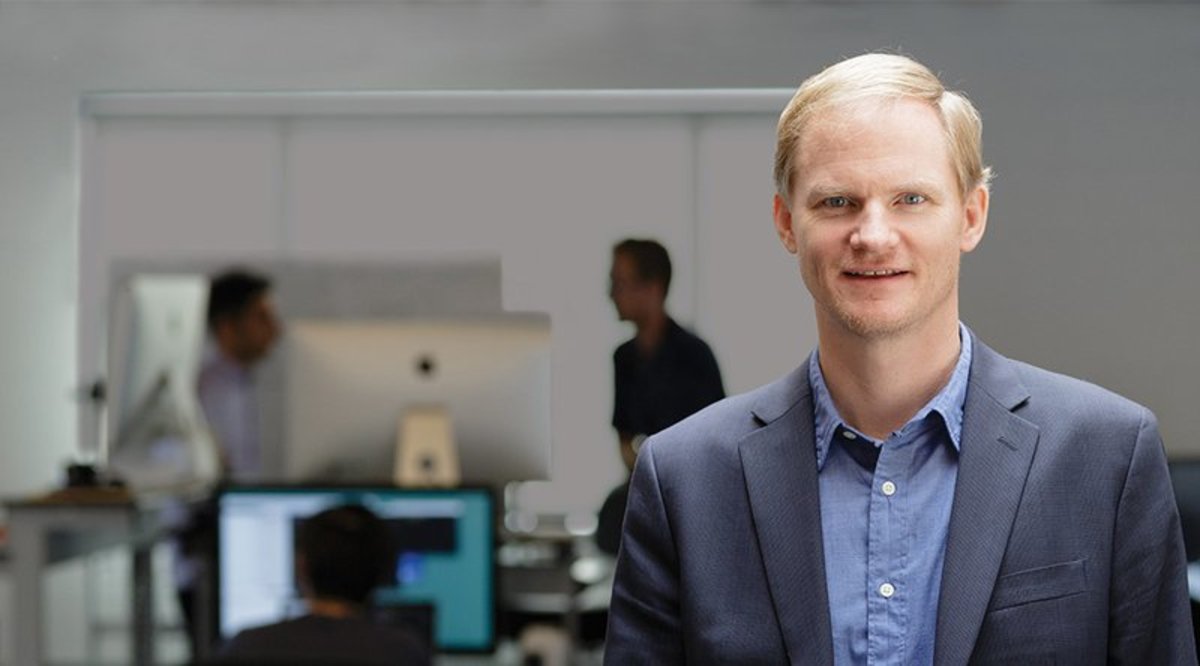
co-founder and CEO Mike Belshe remembers when the fascination with computer engineering that began for him in childhood made its most emphatic statement and claim on his life.
He had just left old warhorse Hewlett-Packard, his first job out of college, to join Internet browser pioneer Netscape as it was poised to launch its initial public stock offering in 1995. (His departure was rather too sudden to suit the sensibilities of his “HP Way” bosses, but that’s another story.)
Commencing to work almost non-stop through long days and nights “not because of deadlines, but because I loved it so much,” Belshe was driving across town with fellow computer geek and visionary Rob McCool one day when they were simultaneously awe-struck by the same sight: a large billboard with “http:” sprawled across its face, followed by a web address.
“Whoa!” McCool exclaimed. “I never thought I would see that.”
“The billboard spoke to him,” Belshe remembers. “That’s when I realized that what we were doing really matters.”
This theme of engagement with things of import is a recurrent theme in Belshe’s life. It partly explains the intriguing mix of five-star companies and start-ups dotting his resume. After HP and Netscape, Microsoft was another major stop; from there he migrated to Google just in time to help lead the development of Chrome. He stayed there for a half-decade.
Start-ups included Good Technology, Remarq and his own Lookout Software with partner Eric Hahn. All of them were successes in their own right, though it was neither money nor conventional pride that drove Belshe’s journeys along the tech frontiers of his day. It has always been more about using his supple intelligence and imagination to help bring something interesting and important into the world, most always with highly technical solutions that ultimately filter down into the usefulness and parlance of everyday users who have no particular technical skill.
And now there is Bitcoin security company BitGo, steadily picking up market share as the first “multi-signature” wallet in the Bitcoin world. The platform makes use of Belshe’s problem-solving and programming ingenuity to bring greater ease and utility to the thorny problem of securing bitcoins.
It is a kind of gift, this ability to bridge the worlds of software engineering via complex, exacting code and an end product that the proverbial Iowa Grandma can manage with ease from the comfort of her kitchen table.
As Belshe himself freely admitted in a recent plain-spoken blog post at belshe.com, Bitcoin isn’t anywhere near reaching Grandma yet.
“Bitcoin in Denial” ran the headline on his post, which conveyed a “Slow down, this is gonna take a while” message to those who envision Bitcoin triumphing over fiat currencies and the credit card industry and reaching Grandma by next week or next year. But if anyone will eventually be able to carve the road to her, it will be Belshe.
Two decades into a tech career that he remembers being ignited by a computer magazine that his electrical engineer father brought home, he now finds himself at a mid-career sweet spot. With deep experience behind him, industry contacts and resources galore, and still copious energy, he is committed to making Bitcoin the most secure digital asset tool ever devised without its users, in his words, “having to learn how to operate a digital asset vault.”
Belshe co-founded BitGo in 2013, just a year after discovering Bitcoin and loading up on a bunch of coins for himself and various friends on a dedicated offline laptop he kept under his couch. “With Bitcoin’s price going up, I realized I had a staggering amount of money just sitting there on a laptop. I was following best practices, but I felt scared enough to look for a better way to store all these coins.”
A quick survey found him surprised that there really weren’t any better security mousetraps at the time, so he set about to invent one. Anyone who knows Belshe could have predicted it wouldn’t take him long.
BitGo launched the world’s first multi-signature wallet last August, created by Belshe himself using a “P2SH” protocol that was developed by Gavin Andresen, chief scientist of the Bitcoin Foundation and Bitcoin’s lead core developer at the time.
While his service won’t quite reach Grandma yet, it has given Bitcoin holders an unparalleled means of securely holding their funds without fear of either being hacked or suffering some human error of forgetfulness or misplacement. It turns out, by the way, that error is a far more common cause of lost bitcoins than is the more feared specter of malevolent hackers.
We wanted a system that doesn’t depend on anyone else and wasn’t vulnerable to theft, a lost hard disk or paper wallet, or a forgotten-and- now-gone password,” Belshe says. “The challenge is always this: How do you improve security in a way users understand?”
Belshe & Co. appear to be meeting that challenge with growth figures ($1 billion transacted in the third quarter) and a corporate profile for which less substantive startups would no doubt hand over a good portion of their Bitcoin vaults. P2SH or pay to script hash addresses have grown more than 84 percent over the past 90 days, and BitGo controls the majority share of market for P2SH Bitcoin addresses.
It’s all big-time fun, which is one crucial metric Belshe applies to virtually all his professional endeavors. But even more important, if he were advising young people just launching their careers, is this: “Do something that matters.”
One gets the sense that having fun and doing things that matter have become almost one and the same thing for Belshe. That’s just one more sweet spot in a career from which the Bitcoin world is now benefiting in ways that matter greatly to it.
This post originally appeared in yBitcoin.










